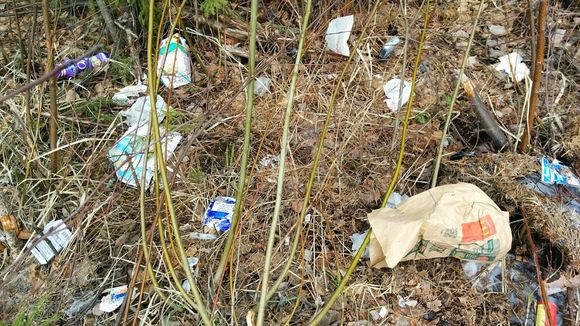Cleaning up litter has expensive price tag in Finland

Spring has finally arrived in Finland, revealing massive amounts of waste that has accumulated along the motorways and in the forests.
Despite efficient waste removal services, some people just can’t seem to put debris in its proper place. The cost of cleaning up the mess after the snow melts each year is impossible to estimate.
Finland has a well-organised waste management system, but even so, Finns throw tonnes of debris each year in places they don’t belong. Roadsides are a mess of empty candy bags, cigarette packs and coffee mugs, while recycling points and forests are full of electronics and furniture and other assorted waste that has been dumped there illegally.
Why do people litter? And why do they leave their trash in the wrong places? Waste management companies confront these questions every day in their effort to education and inform the populace.
“Ignorance is part of the equation, as some people really don’t know how to properly dispose of their trash, even though the information is just a phone call away or on our websites. But the biggest reason is a certain kind of ambivalence. It can’t be laziness, because they have already gone through the trouble of bringing the waste somewhere – even if it is the wrong place,” says Satu Estakari, manager at the South Ostrobothnia waste management company Lakeuden Etappi.
Who cleans it up?
Many different organisations clean up Finland’s trash-filled areas. Fifteen regional ELY Centres representing the central government are responsible for keeping most of the country’s roadsides and rest areas clean. Individual forest owners have to clean up any waste found on their land, if the culprits who left it there can’t be found.
Municipalities are responsible for keeping the built environment of their regions up to spec, and real estate companies foot the bill for tidying their own property. Add to this numerous volunteer organisations and sport clubs who help with cleaning up each year, and you get a sense of the manpower that is required.
We all pay the bill
Waste management company Lakeuden Etappi calculates that extra clean-up around its recycling points and the removal of items that shouldn’t have been left there costs them between 50,000 and 60,000 euros per year, as they have been forced to hire someone to travel to each of their locations regularly for this purpose.
“Littering ultimately backfires, because it makes things more expensive for all of us in the end. Just think of all the other things we could use the cash pumped into this unnecessary expense on,” says Estakari.
The average Finnish recycling point has several bins for people’s waste carton and cardboard, glass, small metal containers and gently-used clothes.
In the capital city region, so-called Sortti Stations accept larger pieces of household waste, such as furniture, electrical equipment and renovation waste, as well as hazardous waste like car batteries. There is no charge for bringing electrical devices or hazardous waste to the stations, but a small charge is levied for things like garden waste and timber.
Related stories from around the North:
Canada: Plastic microbeads- a toxic substance in waterways-from the Great Lakes to the Arctic, Radio Canada International
Finland: Gravel used on slippery streets leaves contaminants in spring, Yle News
Greenland: Study finds increase in litter on Arctic seafloor, Blog by Mia Bennett
Sweden: Sweden tackles plastic bag problem, Radio Sweden
Russia: Submariners feed polar bears with garbage, Barents Observer
United States: Alaska – Cleanup for 6 Arctic legacy wells, Alaska Dispatch News



